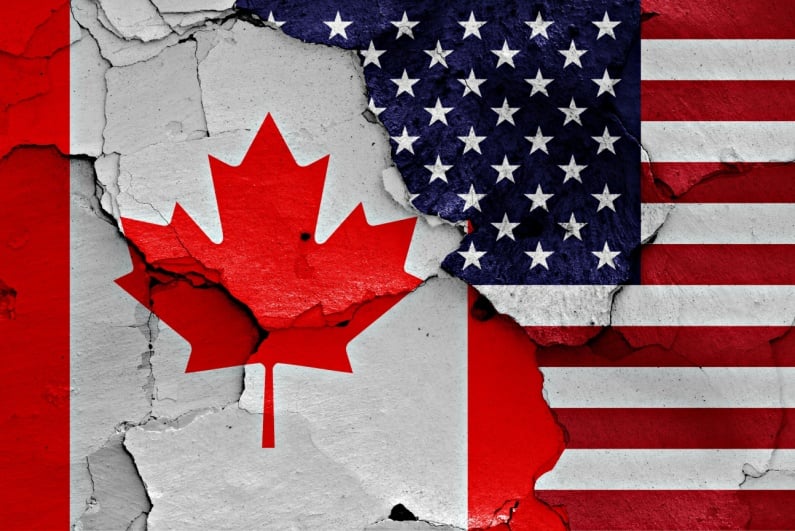Understanding China's Quiet Tariff Exemptions For US Goods

Table of Contents
Identifying the Exempted US Goods
Pinpointing precisely which US goods benefit from China's quiet tariff exemptions proves challenging due to a lack of comprehensive public data. However, piecing together information from various news reports, industry analyses, and (sparse) official statements reveals some trends.
Product Categories & Sectors
The categories of US goods receiving exemptions appear to be diverse, suggesting a nuanced approach by the Chinese government. Examples include:
- Agricultural products: Soybeans, corn, and certain types of fruit have reportedly seen tariff relief. This aligns with China's need to secure stable food supplies.
- Medical equipment and pharmaceuticals: Specific medical devices and essential pharmaceuticals have likely been exempted to address China's healthcare needs.
- High-tech components: While less readily apparent, some reports suggest exemptions for certain crucial components used in manufacturing, reflecting China's reliance on US technology in specific sectors.
- Specific chemicals: Certain industrial chemicals crucial for various manufacturing processes may also be included, though concrete details remain scarce.
Criteria for Exemption
Determining the exact criteria for exemption remains opaque. However, several factors likely play a role:
- Domestic needs: China's prioritization of essential goods for its domestic market undoubtedly influences which products receive exemptions. The necessity of the goods for the Chinese economy and consumers seems a major determining factor.
- Strategic importance: Products crucial for specific industries or national projects might be given preferential treatment, furthering China's strategic economic goals.
- Lobbying efforts: While not officially acknowledged, behind-the-scenes lobbying by US businesses and industry groups likely influences which products gain exemptions.
Data Sources and Transparency
The lack of transparency surrounding these exemptions presents a significant hurdle for businesses. Obtaining reliable data requires piecing together information from various often-conflicting sources, including:
- News reports: Media outlets frequently report on individual exemptions, offering valuable, if fragmented, insights.
- Industry association statements: Trade associations often publish analyses and summaries based on their members' experiences.
- Official Chinese government announcements: These announcements are infrequent and often lack detailed specifications, making comprehensive analysis difficult.
The Impact of Tariff Exemptions on US Businesses
The impact of these quiet tariff exemptions on US businesses is complex and multifaceted.
Economic Benefits for US Exporters
For those US businesses whose goods qualify for exemptions, the benefits are substantial:
- Increased sales: Reduced tariffs translate directly into increased competitiveness in the Chinese market and, ultimately, higher sales volume.
- Improved profitability: Lower tariffs boost profit margins, creating a more favorable economic environment for exporting businesses.
- Enhanced market access: The exemptions provide valuable access to the vast Chinese market, mitigating some of the negative impacts of the broader trade war.
Challenges and Uncertainties
Despite the benefits, significant challenges persist:
- Unpredictability: The lack of transparency and the ad-hoc nature of the exemptions create significant uncertainty for businesses attempting long-term planning.
- Risk of policy reversals: Exemptions could be revoked at any time, leaving businesses exposed to sudden tariff increases.
- Limited scope: The exemptions often cover a limited range of goods, leaving many US businesses still burdened by tariffs.
Comparison with Previous Trade Agreements
Whether these quiet exemptions signal a broader policy shift or merely fall within existing, less-publicized trade agreement frameworks remains unclear. Further research and analysis are required to clarify this aspect of China's trade policy.
Geopolitical Implications of China's Approach
China's strategy of granting quiet tariff exemptions carries significant geopolitical implications.
Signals of De-escalation or Strategic Maneuvering?
The motivations behind these exemptions are likely multifaceted. They could represent:
- De-escalation of trade tensions: A carefully calibrated move to de-escalate tensions while maintaining leverage.
- Strategic maneuvering: A way to selectively strengthen certain sectors of the Chinese economy while maintaining pressure in others.
- Domestic political considerations: A response to domestic pressures to address shortages of specific goods.
Impact on US-China Trade Relations
These exemptions, however quiet, exert a noticeable influence on US-China trade relations. They can:
- Signal a potential for greater cooperation: Suggesting a willingness to find areas of compromise.
- Maintain ambiguity: Allowing China to retain its negotiating leverage while offering concessions in specific areas.
Conclusion
Understanding China's Quiet Tariff Exemptions for US Goods requires careful consideration of the limited transparency, the diverse range of exempted products, and the complex geopolitical context. While these exemptions offer some economic benefits to select US businesses, the inherent unpredictability and lack of clear guidelines present significant challenges. The ultimate impact of these exemptions on US-China trade relations remains to be seen, but their existence underscores the nuanced and often opaque nature of the ongoing trade dynamic. Staying informed about the latest policy changes and their implications for your business is critical to navigating this dynamic trading landscape effectively. Continued monitoring of China's quiet tariff exemptions for US goods is essential for all businesses engaged in Sino-American trade.

Featured Posts
-
 Mets Finalize Starting Rotation The Last Two Spots Filled
Apr 28, 2025
Mets Finalize Starting Rotation The Last Two Spots Filled
Apr 28, 2025 -
 Hudsons Bay Closing Sale Up To 70 Off
Apr 28, 2025
Hudsons Bay Closing Sale Up To 70 Off
Apr 28, 2025 -
 Cairo Talks Hamas Leaders Seek Ceasefire As Trump Advocates For Gaza Aid
Apr 28, 2025
Cairo Talks Hamas Leaders Seek Ceasefire As Trump Advocates For Gaza Aid
Apr 28, 2025 -
 Market Swings And Investor Reactions Professionals Vs Individuals
Apr 28, 2025
Market Swings And Investor Reactions Professionals Vs Individuals
Apr 28, 2025 -
 Posthaste Measuring The Us Economic Fallout From The Canadian Travel Boycott
Apr 28, 2025
Posthaste Measuring The Us Economic Fallout From The Canadian Travel Boycott
Apr 28, 2025
